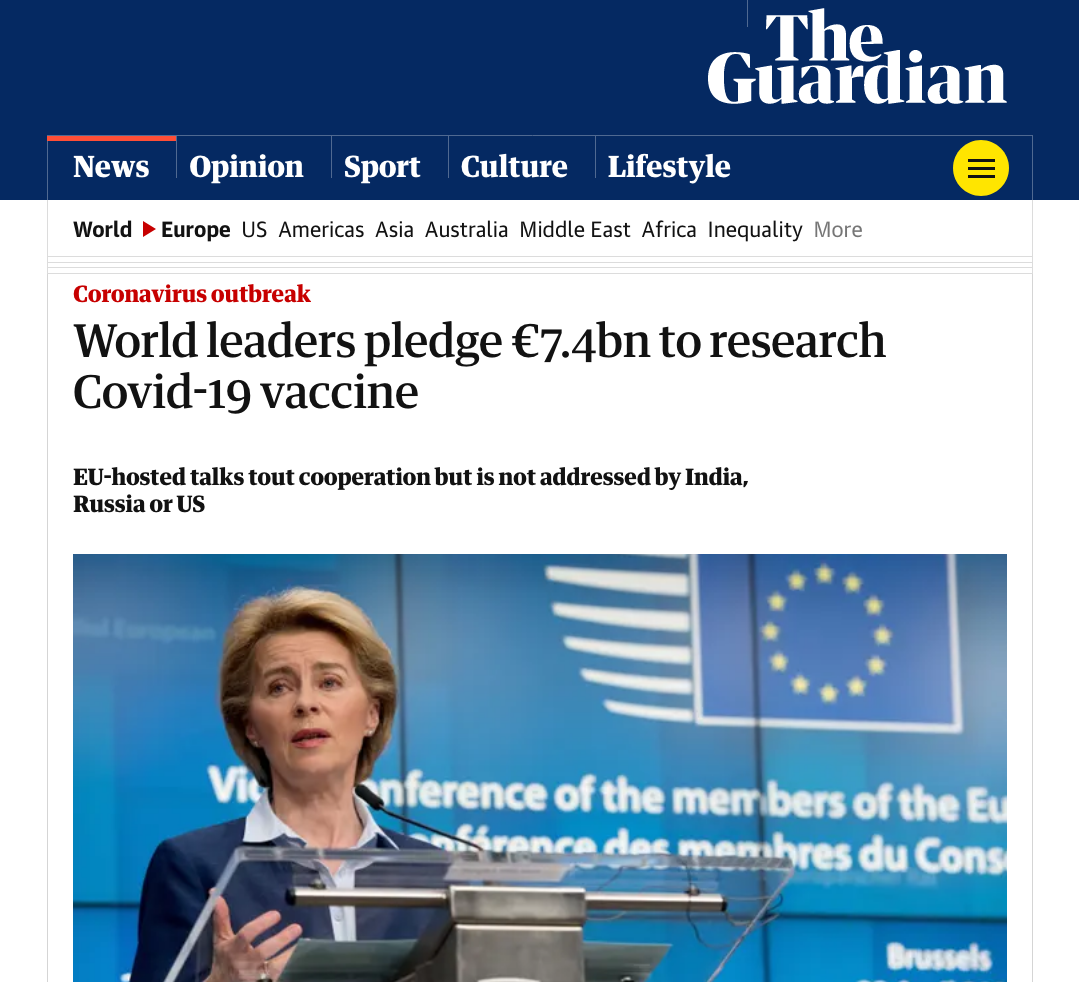$8 Billion promised without much accountability
On the same day, a group of world leaders convened by the European Union committed over 8 billion USD to research on the COVID-19 vaccine. At the virtual event, French president Emmanuel Macron said that any vaccine developed as a result of this funding partnership “won’t belong to anybody” and that “access will be given to people around the globe.” However, EU officials clarified that pharmaceutical companies that receive any of this 8 billion USD in public funding will not be asked to forgo intellectual property rights, but simply to commit to an affordable price worldwide—which has not been clearly defined yet and may not be truly affordable, particularly in low-income countries. At the same event, the Executive Board Chair of Unitaid stated that countries need to “learn from the positive experience of the Medicines Patent Pool in making HIV treatments available to most of those who need them and support the implementation of a global voluntary pooling mechanism for Covid-19 related technologies, as proposed by World Health Organization and the President of Costa Rica.” We hope world leaders will listen, and commit to alternative intellectual property strategies that ensure affordability worldwide.
The Vaccine Alliance proposes advanced market commitment
On May 4th, Gavi proposed an advance market commitment as a strategy to ensure an adequate supply of the COVID-19 vaccine. In an advance market commitment model, governments agree in advance to buy a large quantity of a vaccine at a set price from manufacturers, avoiding shortage due to supply and demand. However, advanced market commitments are often proposed to avoid action that directly addresses affordability, and if the proposed “set price” is too high, many governments will not be able to afford the supply their people need—and taxpayers are still footing the bill. In addition, reliance on only a few manufacturers can further exacerbate the problems that monopolies cause for affordability and access. We are therefore watching the discourse around advance market commitments with caution, and hope to emphasize that these models cannot replace real guarantees of affordability.


One reply on “Week 4: What’s happening in the world of the vaccine?”
Couldn’t agree more with the stance you are taking. Here in NZ we have a govt organization called Pharmac that bulk buys meds for the whole country to increase their bargaining power and medications are heavily subsidised for consumers. But Pharmac’s budget is not unlimited and high drug prices from suppliers limits the range of drugs it can purchase so it has to weigh up cost against the number of people who will benefit. Some very expensive drugs that only a small number of people need are not available here unless people have the means to purchase them privately from overseas. And of course excessive drug prices mean less govt money available for other areas of the health system like preventative medicine.